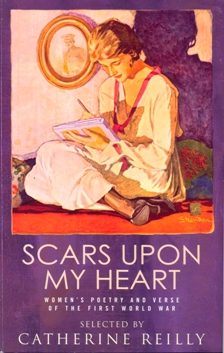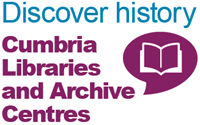Cumberland Council has now replaced the previous Cumbria County Council and 3 District Councils. The content on this website is still relevant including documents that may include the old county council logo. Find out about the council changes
Please update any cumbria.gov.uk browser shortcuts you may have to the new site pages as needed
The War Poets

The names of many First World War poets are well known: Wilfrid Owen, Siegfried Sassoon, Rupert Brooke, Edward Thomas and Isaac Rosenberg - these are a few of the familiar names which have been anthologised over the years, and resonate with us all. Fighting, and in some cases, dying in the war, led these men to write poetry which described the horror and the suffering of the battle fields, or articulated their anger, frustration and the sense of futility, representing as they did, the 'lost generation'.
What is less well known is that these familiar names are only a fraction of the total number of poets writing poetry during the Great War. Experts in the field, such as Claire Buck, Catherine Reilly and George Walter have all stated that over 2,000 poets were published during the war.
That women went to the front as nurses or ambulance drivers, or, served at home as nurses, is widely known and is their first hand experiences became the source material for a rich vein of diaries, plays, and novels, but, what is little appreciated by many is that of these 2,000 writers producing First World War poetry, a number were female war poets.
"My own recent bibliographical research….succeeded in identifying no fewer than 2225 British individuals, men and women, servicemen and civilians, who had written verse on the theme of this most terrible war. Of these 2225 at least 532 were women" (Catherine W. Reilly)
Whilst they did not fight on the frontline, endure the trenches or lose their lives in no man's land, women were equally affected by the war, and their lives were changed and impacted upon irrevocably.
Whether it was through their work in munitions factories, nursing in VAD hospitals, dealing with bereavement, reading newspaper reports of the battles, witnessing the return of severely injured and mutilated men, or observing the effects of war on the home front, these women had a voice, a view point and a style. Grief, despair, endurance, anger, sentimentality, romanticism, patriotism, social comment, protest and realism may all be found.
In literary terms, until relatively recently the voices of these women poets of the First World War have been drowned out, dismissed, or unacknowledged and their poetry has, in so many cases, been overlooked, sadly.
"The particular furious magnificence of the soldier poets makes it unsurprising that women poets should recede into the background. Yet to be so little known now?" (Judith Kazantzis)
With over 500 female poets it is impossible to list here every single name, but the better known ones include Vera Brittain; Rose Macualay; May Wedderburn Cannan; Margaret Postgate Cole; Eleanor Farjeon; Marie Stopes; Edith Nesbitt; Jessie Pope; Kathleen Tynan; Charlotte Mew and Elizabeth Daryush.
Whilst many of their original works are now out of print, it is possible to track down their poems in anthologies. Scars Upon My Heart, selected by Catherine Reilly, is a particularly good one and includes the work of 79 female poets, whilst Poetry of the First World War: An Anthology, edited by Tim Kendall, has been well received by critics and reviewers.
The following websites also contain a wide selection of First World War poetry written by women
http://allpoetry.com/column/7524761-Women-s-Poetry-of-World-War-1--1914-1918---by-Oldpoetry2
http://femalewarpoets.blogspot.co.uk/
http://www.oucs.ox.ac.uk/ww1lit/education/tutorials/intro/women
http://www.poetrybyheart.org.uk/first-world-war-poetry-showcase/

